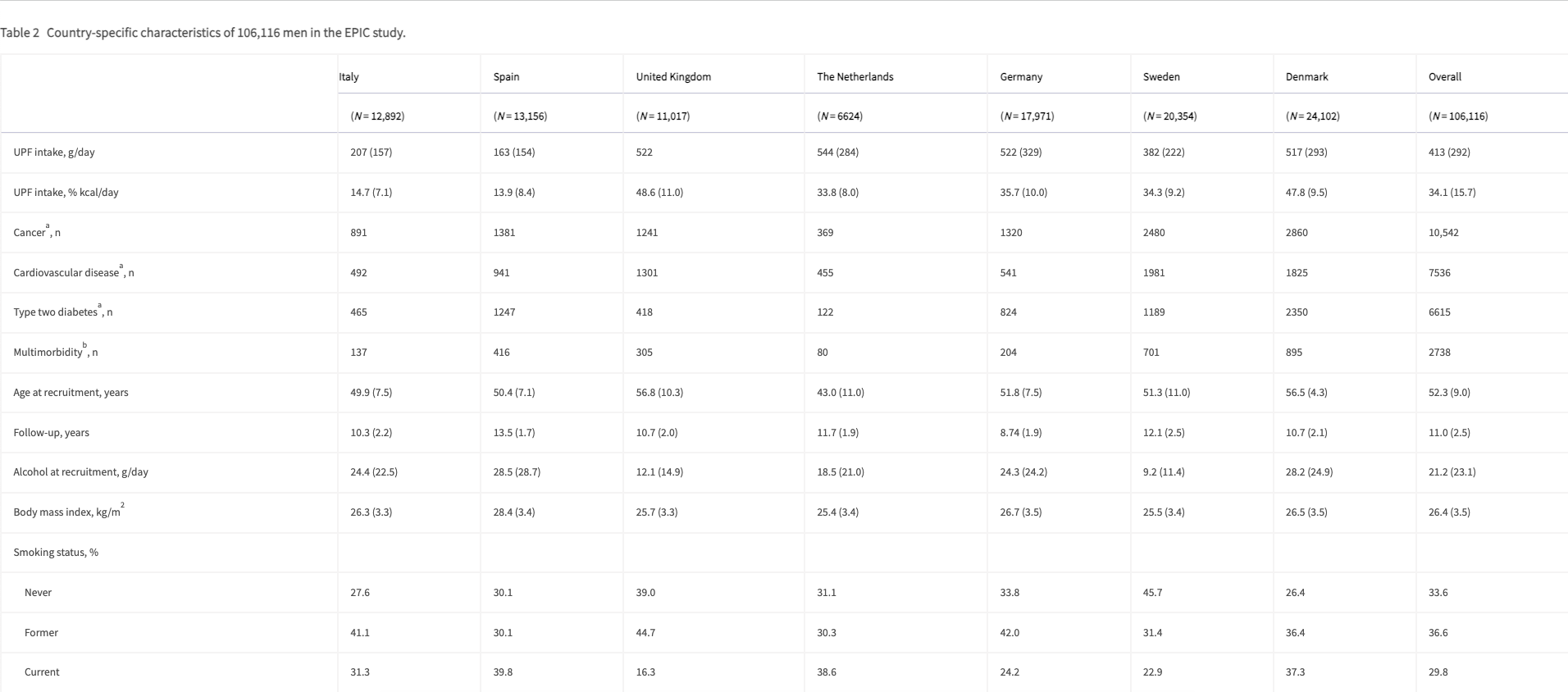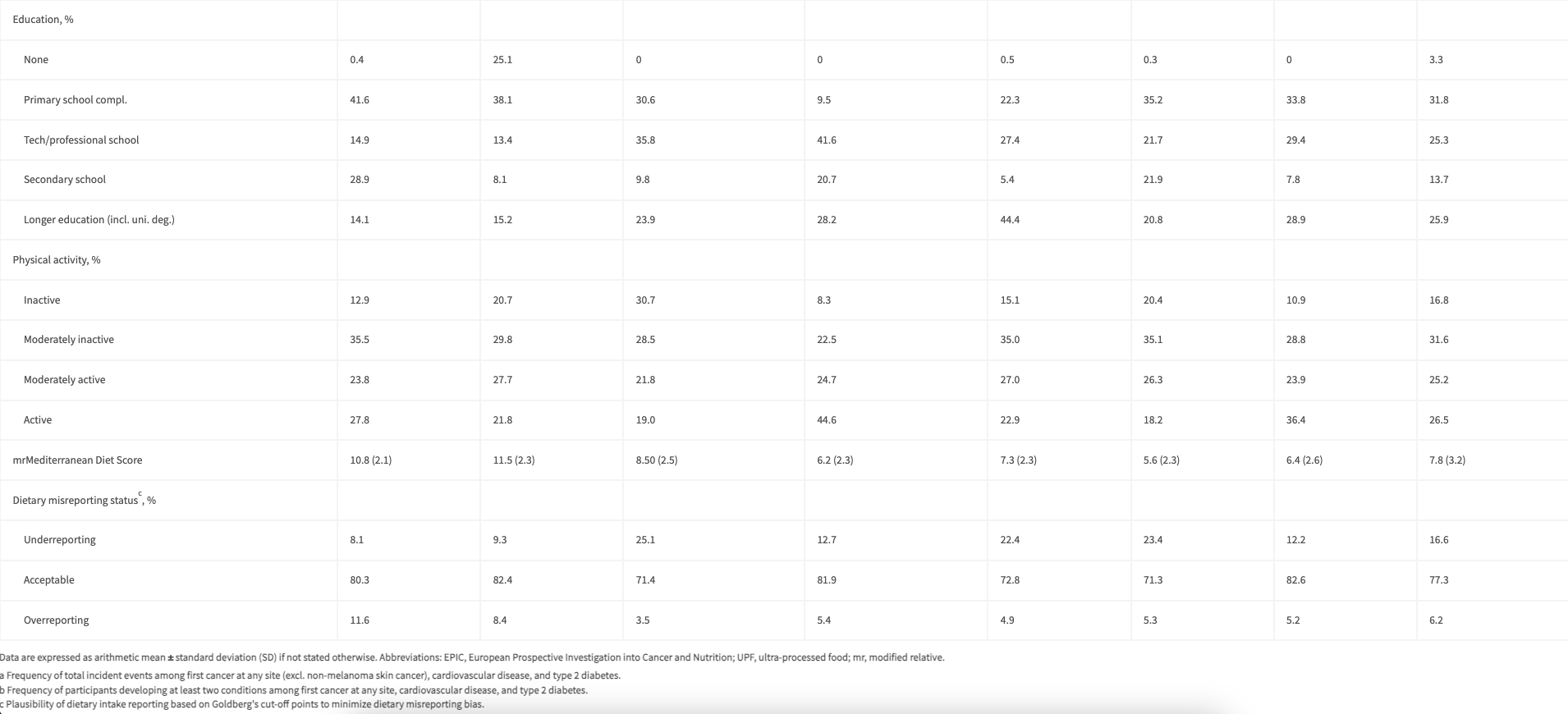Is there a link between ultra-processed foods and cancer, diabetes and cardiovascular disease?

A study published in The Lancet investigated whether there is a link between ultra-processed foods and the appearance of at least two chronic diseases including cancer, diabetes and cardiovascular disease. All the details and data of European countries. Spoiler: Italy isn't in such a bad situation…
Tasty and easy to prepare, but not great for your health. These are ultra-processed foods, the diffusion of which has increased throughout the world in recent years, now representing 50-60% of daily energy intake in some high-income countries. This is confirmed by a study , coordinated by the International Agency for Research on Cancer (IARC) and published in the journal The Lancet Regional Health – Europe , which investigated the link between ultra-processed foods and the appearance of at least two chronic diseases including cancer, diabetes and cardiovascular diseases.
UNPROCESSED AND PROCESSED FOODS
As the experts from the Harvard Medical School cited by the Airc Foundation explain, "food is considered unprocessed or minimally processed when it is intact, as it is present in nature or with only a few changes compared to its original state, with small modifications perhaps made to make it suitable for human consumption. Carrots, apples, raw chicken are just a few examples."
“A certain degree of food processing – they say – is quite common and consists, for example, of cooking and adding salt or oil. If this happens industrially, as for example with canned legumes, the foods are called processed ."
WHAT ARE ULTRA-PROCESSED FOODS
The even higher level is that of the so-called ultra-processed which, as we read in the research in The Lancet , are "industrially manufactured products that include deconstructed and modified food components, recombined with a variety of additives". In fact, they are called this both because they contain numerous added ingredients – for example salt, sugar, colourings, additives – and because they are often produced by the processing of substances, such as fats and starches, extracted from simpler foods.
This includes many ready-made and frozen meals, sugary drinks, fast-food products and many sweet or savory packaged snacks. In some cases, Airc specifies, ultra-processed foods are also "foods mistakenly considered healthy, such as breakfast cereals, sweet fruit yoghurts or crackers".
“These foods are generally rich in added sugars, fats and refined starch which alter the composition of the intestinal microbiota, i.e. the microorganisms that colonize our intestine, contributing among other things to weight gain and obesity” said the experts from Harvard Medical School.
I STUDY
The study by the International Agency for Research on Cancer (IARC) is based on data from the European Prospective Investigation into Cancer and Nutrition (EPIC) and involved 266,666 men and women from seven European countries, where the consumption of ultra-processed foods is currently estimated at more than half of a person's daily dietary intake.
The objective was to verify whether there is a relationship between the consumption of these foods and multimorbidity, i.e. the appearance of at least two chronic diseases: specifically, at least two of cancer, cardiovascular disease and diabetes.
THE RESULTS
The researchers, who followed the participants for over 11 years, found that as the consumption of ultra-processed foods increased, the risk of simultaneously developing cancer, cardiovascular disease and diabetes also increased. In particular, for every increase of 260 grams per day of ultra-processed foods there was a 9% increase in multiple diseases.
However, the risk is not the same for all products. In fact, if products and sauces of animal origin and artificially sweetened drinks increase the chances of getting sick, no risk has been observed for ultra-processed products of plant origin.
THE RANKING OF COUNTRIES
The diffusion of ultra-processed foods has increased worldwide and multimorbidity is now a growing health problem not only in Europe but in many regions of the world, including low- and middle-income countries.
However, among the countries involved in the study, the highest consumption is recorded in the Netherlands for men and in Germany for women, while Italy – after Spain – is the second with the lowest rate, with an average of 207 grams per day for men and 183 for women.


This is a machine translation from Italian language of a post published on Start Magazine at the URL https://www.startmag.it/sanita/esiste-un-legame-tra-cibi-ultra-processati-e-cancro-diabete-e-malattie-cardiovascolari/ on Fri, 17 Nov 2023 06:22:06 +0000.
